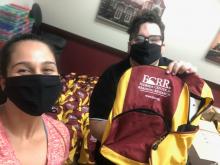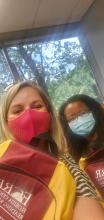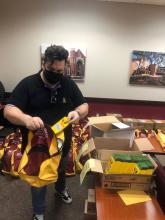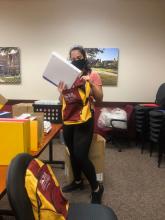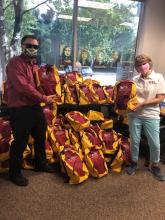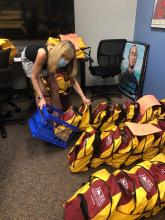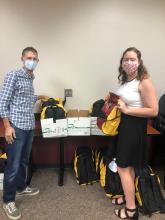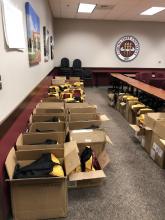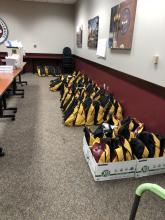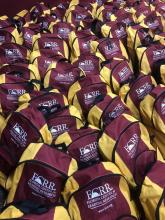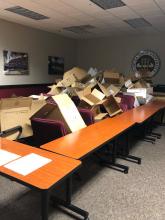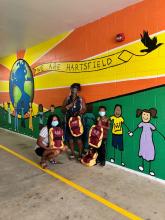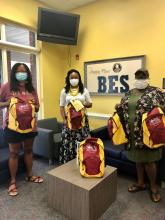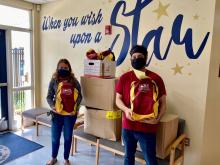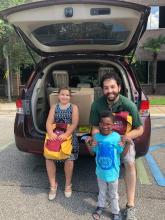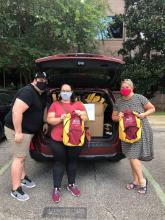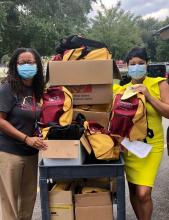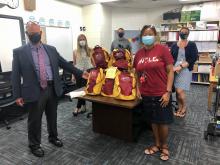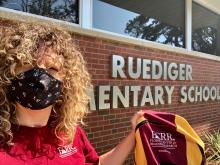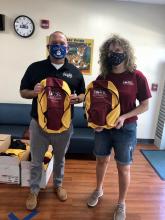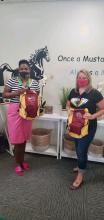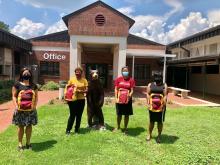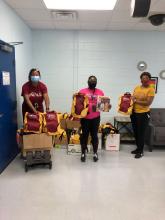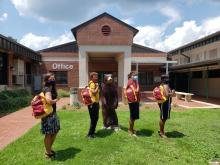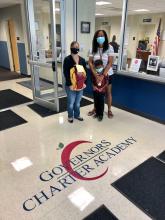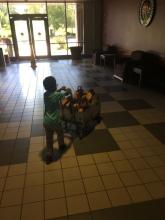FCRR’s READ UP Partnership Tackles COVID-19 Learning Loss
TALLAHASSEE, Fla. — When the COVID-19 pandemic hit Leon County early last spring, local schools were left in uncharted waters. Teachers were tasked with providing remote and online learning, while parents and caregivers navigated the reality of creating a school environment at home. Similarly, researchers at the Florida Center for Reading Research, who entered into the READ UP research-practice partnership with Leon County Schools just months earlier, knew their expertise would be critical over the coming months.
As practitioners focused on the immediate issues of health and safety, as well as the challenges of remote learning, FCRR faculty, staff, and students mobilized to tackle the learning loss the pandemic would inevitably cause. Their strategy would take multiple forms. First, the REL Southeast team pivoted from designing materials that were under development for K-3 teachers to use with families to revising and delivering these materials to families directly through the Supporting Your Child's Reading At Home website. They also created infographics, blogs, and even hosted a webinar for families (a first for the national REL program). Meanwhile, with additional funding and support from partners at Scholastic, the Walmart Foundation, and the Florida Grade Level Reading Campaign, the team developed plans to support young learners who were most vulnerable to experiencing challenges related to the pandemic at home and at school. The team decided to partner with principals in Title 1 schools in the county to develop programming that would respond to their needs. Time was of the essence, so the team also worked to leverage innovations that FCRR had already created over the past 20 years.
What became known as FCRR’s PLEASE READ project would provide books, activities, resources and supports to keep families engaged in learning over the summer. As part of this effort, 600 bookbags filled with school supplies, books, and evidence-informed activities were distributed among rising 1st and 2nd graders. A team of FCRR volunteers recently completed the delivery of these bags across 17 schools.
“We are grateful for the commitment of FCRR to students throughout Leon County this summer. The books, learning activities, and programming they provided helped continue learning for our students in a time when they have not been on campus since March,” stated Assistant Superintendent Gillian Gregory.
Another strategy, titled #AtHomeWithFCRR, also encouraged parents to continue learning at home by leveraging FCRR’s Student Center Activities. The activities, designed for small-group classroom instruction in pre-K through 5th grade but easily modified for home use, provide families with fun and easy-to-play games that encourage the development of foundational reading skills. Recognizing that many parents and caregivers may feel uncomfortable “teaching” their children at home, FCRR produced a series of short videos depicting families playing individual activities throughout the summer. Each video prompted viewers to create and share their own videos using the hashtag #AtHomeWithFCRR.
“Parents and caregivers’ are their children’s first teacher. Still, that doesn’t make it any less intimidating! So, we were thrilled to be able to showcase a diverse array of families from across the nation engaging with their children, helping them learn and having fun too,” stated Dr. Nicole Patton Terry, director of The Village at FCRR.
While the partnership has managed to find its footing, and even thrive during these challenging times, more work needs to be done. Researchers are anxious to see if any of the tactics employed will lead to reduced learning loss. Additionally, data collected from the coming school year will inform how the practices might be used to combat learning loss more broadly.
“Our goal has been to figure out how to package evidence-informed materials with robust family engagement in a low-cost, low-tech, easily accessible way. That way, districts would have an affordable, scalable approach that tackles the digital divide and promotes learning at the same time. As the pandemic continues and learning must happen at home, it will be important for our schools to have approaches like these that promote learning and reduce stress for everyone,” stated Patton Terry.
Follow FCRR on Facebook, Twitter, or Instagram for future developments.
The Florida Center for Reading Research (FCRR) is an interdisciplinary research center at Florida State University. Drawing from multiple disciplines, FCRR investigates all aspects of reading and reading-related skills across the lifespan. Through rigorous and robust research, innovation, and engagement, FCRR advances the science of reading to improve learning and achievement from birth through adulthood. For more information, please contact Nathan Archer at narcher@fsu.edu.

